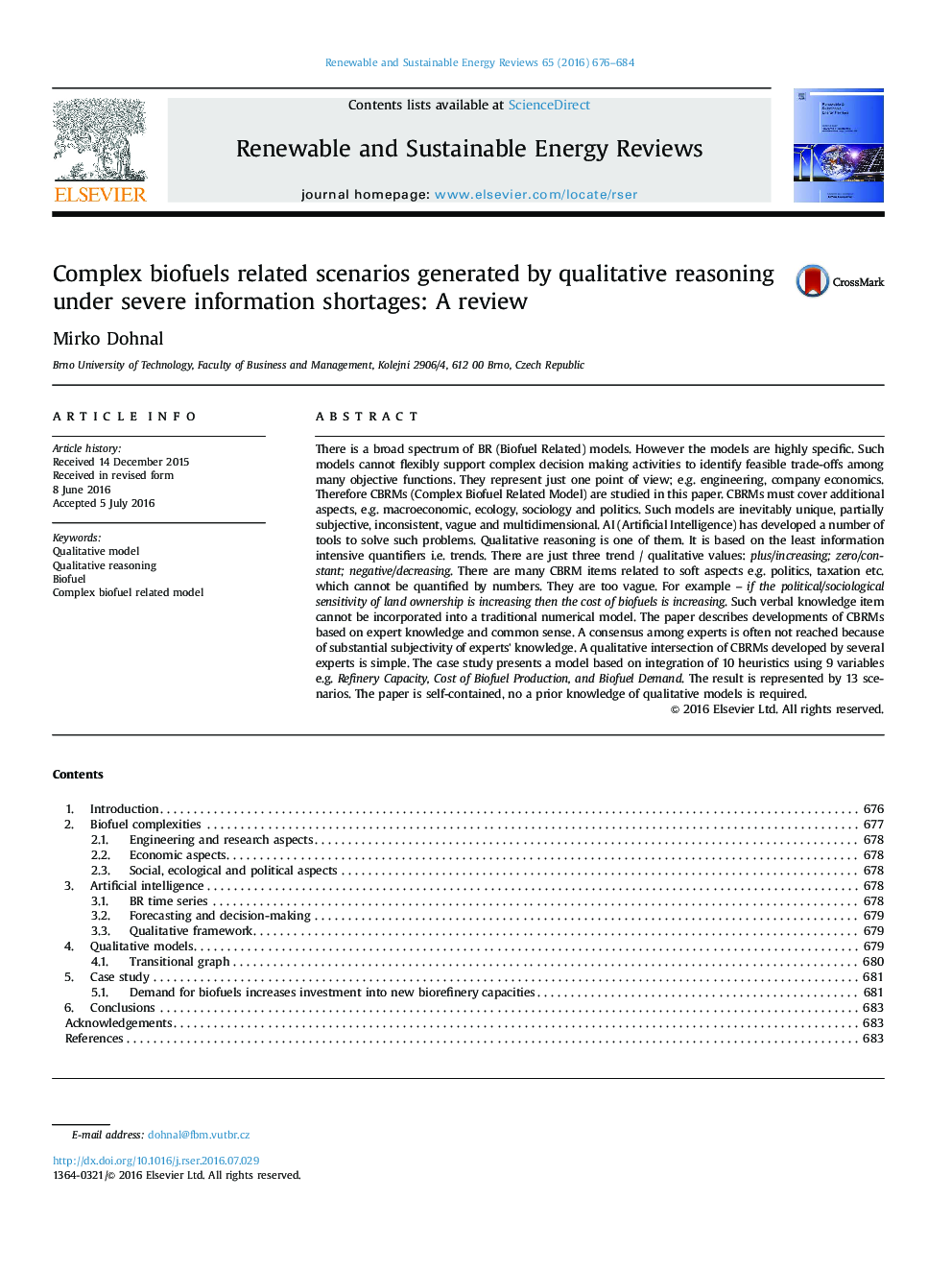| Article ID | Journal | Published Year | Pages | File Type |
|---|---|---|---|---|
| 8112971 | Renewable and Sustainable Energy Reviews | 2016 | 9 Pages |
Abstract
There is a broad spectrum of BR (Biofuel Related) models. However the models are highly specific. Such models cannot flexibly support complex decision making activities to identify feasible trade-offs among many objective functions. They represent just one point of view; e.g. engineering, company economics. Therefore CBRMs (Complex Biofuel Related Model) are studied in this paper. CBRMs must cover additional aspects, e.g. macroeconomic, ecology, sociology and politics. Such models are inevitably unique, partially subjective, inconsistent, vague and multidimensional. AI (Artificial Intelligence) has developed a number of tools to solve such problems. Qualitative reasoning is one of them. It is based on the least information intensive quantifiers i.e. trends. There are just three trend / qualitative values: plus/increasing; zero/constant; negative/decreasing. There are many CBRM items related to soft aspects e.g. politics, taxation etc. which cannot be quantified by numbers. They are too vague. For example - if the political/sociological sensitivity of land ownership is increasing then the cost of biofuels is increasing. Such verbal knowledge item cannot be incorporated into a traditional numerical model. The paper describes developments of CBRMs based on expert knowledge and common sense. A consensus among experts is often not reached because of substantial subjectivity of experts' knowledge. A qualitative intersection of CBRMs developed by several experts is simple. The case study presents a model based on integration of 10 heuristics using 9 variables e.g. Refinery Capacity, Cost of Biofuel Production, and Biofuel Demand. The result is represented by 13 scenarios. The paper is self-contained, no a prior knowledge of qualitative models is required.
Related Topics
Physical Sciences and Engineering
Energy
Renewable Energy, Sustainability and the Environment
Authors
Mirko Dohnal,
